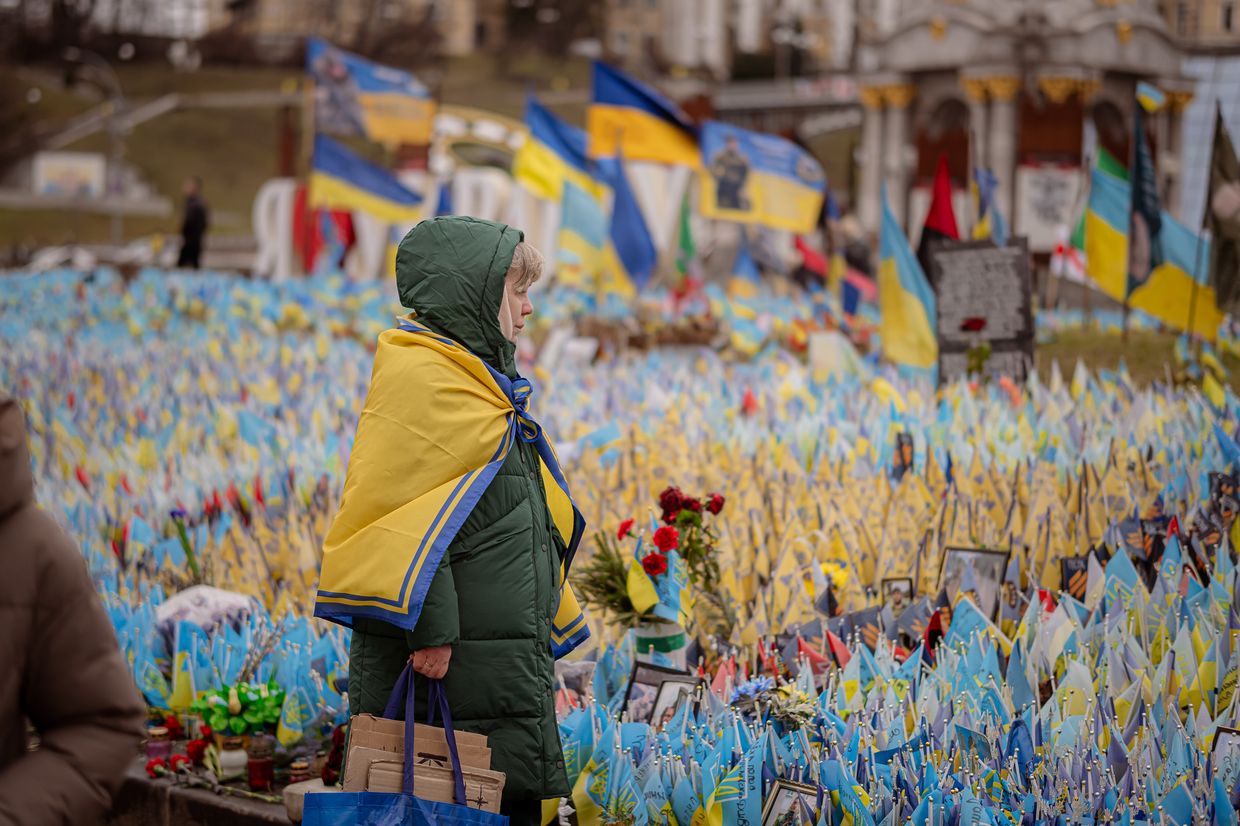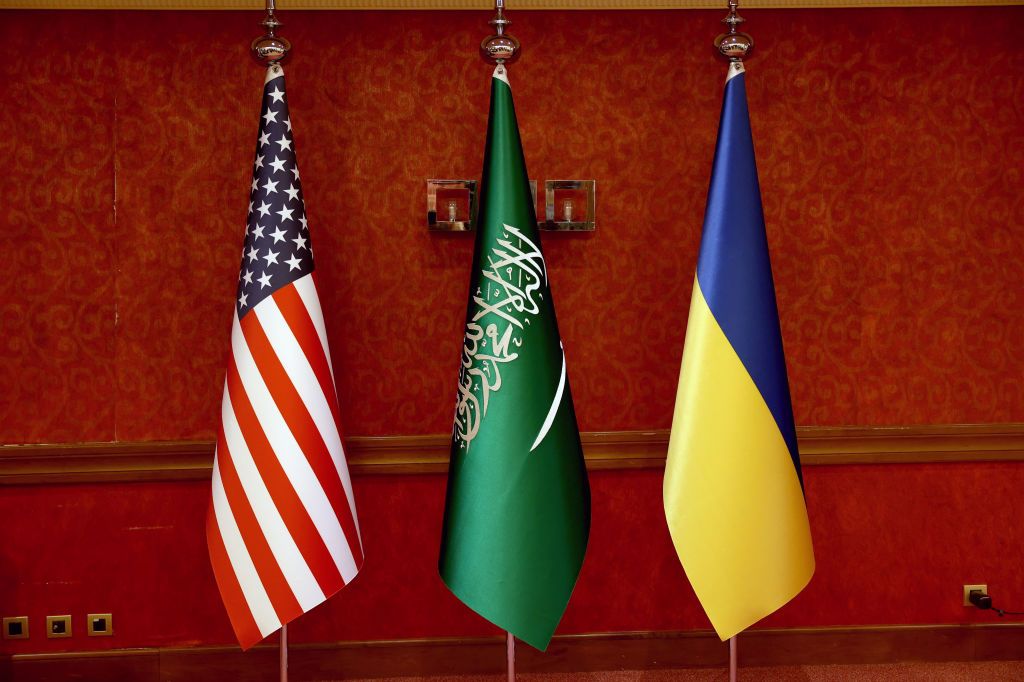"According to the participants of the performances, their goal is to remind the civilized world of the barbaric actions of Moscow, which for many years and decades has systematically violated international law," a source in Ukraine’s military intelligence agency (HUR) told the Kyiv Independent.
"I have great hope that an agreement for a ceasefire in Ukraine will be reached this weekend," German Chancellor Friedrich Merz said on May 9, shortly before traveling to Kyiv alongside the leaders of France, Poland, and the U.K.
U.K. Prime Minister Keir Starmer, French President Emmanuel Macron, German Chancellor Friedrich Merz, and Polish Prime Minister Donald Tusk will arrive in Kyiv early on May 10.
The United States embassy in Kyiv on May 9 issued a warning that Russia could launch "a potentially significant" attack in the coming days, despite Putin's self-declared Victory Day "truce."
The sanctioned oil tankers have transported over $24 billion in cargo since 2024, according to Downing Street. The U.K. has now sanctioned more shadow fleet vessels than any other country.
The sanctions list includes 58 individuals and 74 companies, with 67 Russian enterprises related to military technology.
Washington and its partners are considering additional sanctions if the parties do not observe a ceasefire, with political and technical negotiations between Europe and the U.S. intensifying since last week, Reuters' source said.
Despite the Kremlin's announcement of a May 8–11 truce, heavy fighting continued in multiple regions throughout the front line.
Putin has done in Russia everything that Luiz Inacio Lula da Silva had been against in Brazil.
The Kyiv Independent’s contributor Ignatius Ivlev-Yorke spent a day with a mobile team from the State Emergency Service in Nikopol in the south of Ukraine as they responded to relentless drone, artillery, and mortar strikes from Russian forces just across the Dnipro River. Nikopol is located across from the Russian-occupied Zaporizhzhia Nuclear Power Plant in the city of Enerhodar.
77% of Ukrainians positive about 30-day ceasefire, poll shows

Around 77% of Ukrainians view the proposed 30-day ceasefire positively, according to an Omnibus opinion poll conducted by the Kyiv International Institute of Sociology and published on March 25.
In turn, 17% of Ukrainians expressed negative views toward the idea: 8% believe it would weaken Ukraine, 7% see it as a desperate move by the Ukrainian authorities due to the challenging situation at the front, and 2% consider it a step toward Ukraine's surrender.
The U.S. and Ukraine initially supported a broader 30-day ceasefire, including a halt to ground operations, but Russia rejected the proposal unless it included conditions that would weaken Ukraine's defense capabilities, such as a suspension of foreign military aid.
Before the proposed conditions, 47% of respondents who viewed the ceasefire positively believed it would expose Russia's unwillingness to negotiate in good faith.
Between March 19 and March 21, opposition to Russia's ceasefire conditions increased sharply. Around 79% of respondents deemed Russia's conditions categorically unacceptable, while only 16% were willing to consider them, including 14% who found the terms difficult but not entirely dismissible.
The Kremlin later claimed that it had ordered a 30-day halt to strikes on Ukraine's energy infrastructure following a phone call between U.S. President Donald Trump and Russian President Vladimir Putin.
Kyiv also supported a mutual halt on energy strikes but later accused Russia of continuing attacks on civilian targets.
An overwhelming 82% of Ukrainians believe Kyiv should continue fighting regardless of external circumstances. Even in the event of a complete halt on U.S. military support, only 8% said they would lean toward surrender.
If the ceasefire comes without security guarantees, 62% would strongly oppose it, while 32% would reluctantly support it. Should Ukraine secure even minimal security guarantees, more than half of respondents would accept the truce.
The poll was conducted through computer-assisted telephone interviews (CATI) using a random sample of mobile phone numbers across government-controlled regions of Ukraine. A total of 1,326 respondents were interviewed.

Most Popular

After 3 years of full-scale war in Ukraine, Europe announces plan to ban all Russian gas imports

Ukraine, Europe's ceasefire proposal includes US security guarantees, no recognition of Crimea, Reuters reports

Journalist Roshchyna's body missing organs after Russian captivity, investigation says

After Russia's deadly attack on Kyiv, Vance reposts denunciation of Zelensky

Ukrainian sea drone downs Russian fighter jet in 'world-first' strike, intelligence says
Editors' Picks

How medics of Ukraine’s 3rd Assault Brigade deal with horrors of drone warfare

As Russia trains abducted children for war, Ukraine fights uphill battle to bring them home

'I just hate the Russians' — Kyiv district recovers from drone strike as ceasefire remains elusive



